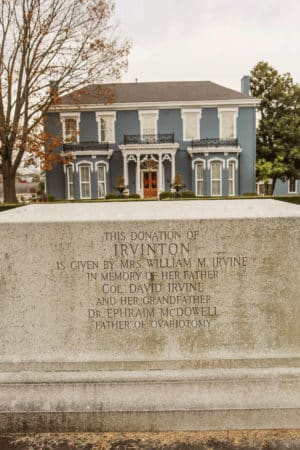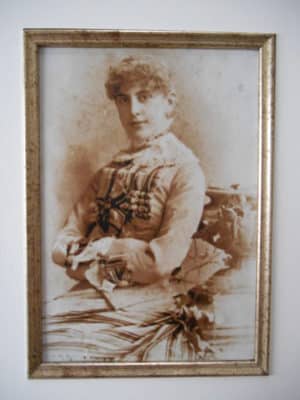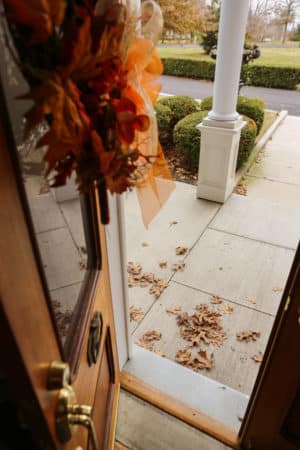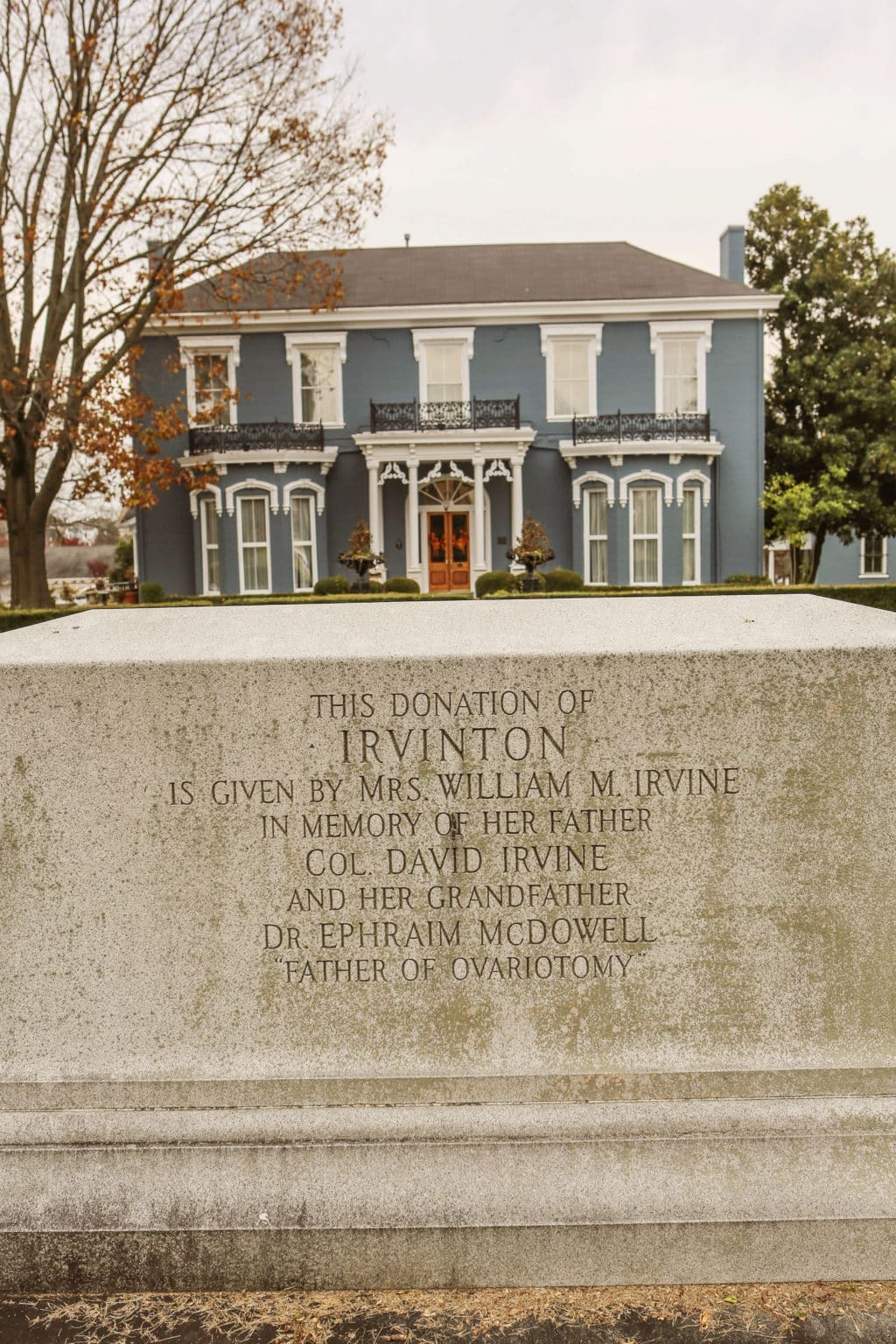BY FREEDA FLYNN Staff Writer at THE EASTERN PROGRESS
Written Halloween 1973
“It is my will that this device of Irivinton shall never, either by gift or sale be in any way connected with Eastern Normal School, of Richmond, Kentucky or any other institution of learning, all claim to this device, as herein set forth shall be forfeited if any President of Professor or Teacher, or anyone connected with any institution of learning ever live or have the management or is in any way connected with this memorial.” These were the words of Mrs. Elizabeth Susan Irvine, the eccentric and stubborn but undeniably tragic final mistress of Irvinton.
Around 1968, Irvinton became the home of the Richmond city-county library. The stately old Georgian mansion is impossible to miss as one strolls down Lancaster Avenue. The grey, tomb-like monument in front Irvinton circle presents a striking contrast with the boisterous children playing joyously in the playground. This being the season of ghosts and such and considering the ancient grudge, old Mrs. Irvine bore Eastern, one marvels at the remarkable composure displayed by the librarian. Mrs. Doris Callender, who calmly confessed that her husband is a faculty member, an English professor at Eastern. Mrs. Callender has done a great deal of work and research on the history- of the house and discusses its former inhabitants with a tender reminiscent regard. She is unperturbed, she says, because Mrs. Irvine knows that she loves the house as much as the old aristocrat herself.
The house was built in the early 1820s by Anthony W. Rollins and was sold to the David Irvine family in 1829 (Mrs. Irvine’s parents.) The second daughter born to the couple was the last Irvine of Irvinton. Elizebeth Susan Irvine. Both of Mrs. Irvine’s maternal grandfathers were distinguished characters in Kentucky history. One was Kentucky’s first governor. Isaac Shelby, and the other was the renowned surgeon. Ephraim McDowell, “the father of • ovariotomy.”- In 1846. Elizebeth Irvine married her first cousin William M. Irvine in the Irvinton parlor, the couple lived at a place called Maplewood for the first ten years of their marriage. Before moving to Irvinton, they witnessed – the overwhelming loss of four children. It is believed that these children were lost to an epidemic that swept Madison County in the mid-nineteenth century. Only Bessie David Irvine lived to adulthood.
In Miss Bessie’s brief twenty-one years, she left a wealth of folklore as her bequest to Madison County. They say Miss Bessie fell in love with a mountain boy at Eastern Normal School who didn’t meet her Mama’s specifications and that for this reason, Mrs. Irvine fell out with the academic community next door. She crushed the budding romance by packing her beloved daughter off to school in New York where she contracted typhoid fever and died. Her body was brought down from New York, and it is rumored that Mrs. Irvine never again opened the big front door through which the coffin passed. Some Madison Countians also believe that the first telegram ever sent in Madison County was the one announcing the death of Miss Bessie Irvine.
All legend aside, Mrs. Irvin’s love for her daughter was sincere. The sketchy outline of a note to one of Bessie’s instructors is the classic note by a doting mother to the instructors of a cherished only child; it doesn’t matter if Bessie studies, see that she practices the piano alone, make sure she always has a fire to sit by and don’t make her draw in a cold room. Miss Bessie died in 1883 and eight years later her father followed. For 28 years Mrs. Elizebeth lived in the old family mansion with only the somber companionship of her unmarried brother, David. She mentions him in her will as being something of a naturalist and whittling artist, his stuffed peacock used to be on display at the library along with his ostrich egg and whittled amulets.
A good portion of those last 28 years was undoubtedly spent oiling on her voluminous 29-page will. The will entrusted the estate to the Kentucky Medical Society for a hospital. This hospital was to be subsidized by the rental of certain lots which Mrs. Irvine owned in Kansas City. Mrs. Irvine specified that the hospital is not used to treat “eruptive or contagious diseases, and never was it to be used as a home or school for nurses. The will which Mrs. Irvine labored at so diligently was not held binding in Kansas, so the funds which were intended for the maintenance of the hospital never materialized and the great nephew of the Irvines took the Kansas City property.
After Mrs. Irvin’s death in the twenties, Irvinton served as a trachoma hospital, under the supervision of Dr. Robert Sory who resided in Richmond. At the time there were only two such hospitals in the United States. With the discovery of antibiotics, the disease has disappeared.
Mrs. Irvine had made provisions for the hospital idea not working out and stated that in such an event, Irvinton would revert to the City of Richmond as a public park and breathing space. There are some portraits of the Irvines and mementos on exhibit at the Ephraim McDowell home in Danville but a wealth of material has been destroyed, although some people are still alive who remember the eccentric old Mrs. Irvine who wouldn’t let them play by her side pond.
Mrs. Callender says that the closest she has come to having a visitation by one of the ghosts of Irvinton was a surprise visit by a Mr. White, the great-nephew of Mrs. Irvine, not long ago. It was quite a shock to see one of the characters in the wrinkled, yellow-paper drama materialize and speak. This ‘branch of the family is now living in Alabama.




